In Fort Myers Slip-and-Fall Lawsuits, Witness Statements May Be Key
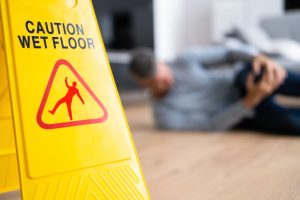 Witnesses can play a pivotal role in any Florida personal injury case – and that includes Fort Myers slip-and-fall lawsuits (also known as Premises Liability lawsuits). Sometimes with the ubiquitous presence of security and cell phone cameras, it’s easy to forget that the firsthand accounts of other people can be invaluable in helping us reconstruct what happened and who was at-fault.
Witnesses can play a pivotal role in any Florida personal injury case – and that includes Fort Myers slip-and-fall lawsuits (also known as Premises Liability lawsuits). Sometimes with the ubiquitous presence of security and cell phone cameras, it’s easy to forget that the firsthand accounts of other people can be invaluable in helping us reconstruct what happened and who was at-fault.
Even with video evidence, some of the strategic reasons Fort Myers slip-and-fall injury attorneys will present witness testimony of an incident:
- Corroboration. A witness – particularly one that has no connection to the plaintiff/injured person – can back up the plaintiff’s story. This not only bolsters the plaintiff’s credibility, but also strengthens their case by providing additional evidence of the defendant’s negligence. Judges and jurors are going to be more convinced of the testimony you’re providing if multiple other witnesses are consistently saying the same thing.
- Observations you may have missed. When a person is seriously injured, their focus in that moment can sometimes narrow to the pain point. This might cause them to miss key bits of information that might prove crucial to the case. Witnesses can help fill in the blanks.
- Establishing actual or constructive knowledge. Florida slip-and-fall claims aren’t easy to win. F.S. 768.0755, Florida’s slip-and-fall statute, requires evidence that the defendant/property owner had actual or constructive knowledge of a dangerous condition on site and failed to take action to remedy it. It should noted that this statute affects only cases when a transitory foreign substance is involved- The witnesses are sometimes even employees of the defendant – sometimes provide this evidence by detailing their actual knowledge of the hazard (ex: “I saw the spill and told my manager, but nothing was done to fix it or warn customers”) or testimony that the condition had existed for some time or occurred with regularity (thereby establishing constructive knowledge).
To be useful in a Fort Myers slip-and-fall case, eyewitness testimony needs to come from a person with firsthand knowledge of relevant events, a good memory, a consistent story and decent credibility. They must also be willing to testify in court. While written statements can be helpful to your lawyer’s investigation, they may be considered inadmissible in court as hearsay without the witness’s willingness to swear to it under oath.





 Florida Personal Injury Lawyer Blog
Florida Personal Injury Lawyer Blog



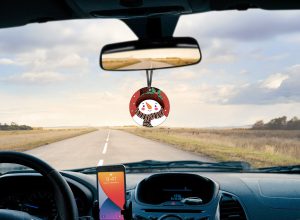 Sparkling decor is part of the magic of the holiday season. But as a Fort Myers injury lawyer, I’d strongly advise you to keep it away from your steering wheel.
Sparkling decor is part of the magic of the holiday season. But as a Fort Myers injury lawyer, I’d strongly advise you to keep it away from your steering wheel. School zone or zoo? Anyone who’s traversed a school zone South Florida at busy pickup or drop-off times might have a tough time discerning. For all school officials and traffic safety engineers prioritize keeping kids safe, the Florida school zone crash risk is still high : Speeding drivers, school bus drivers with big blind spots, distracted walkers and cyclists (especially those with noise-canceling headphones), jaywalkers, and
School zone or zoo? Anyone who’s traversed a school zone South Florida at busy pickup or drop-off times might have a tough time discerning. For all school officials and traffic safety engineers prioritize keeping kids safe, the Florida school zone crash risk is still high : Speeding drivers, school bus drivers with big blind spots, distracted walkers and cyclists (especially those with noise-canceling headphones), jaywalkers, and 
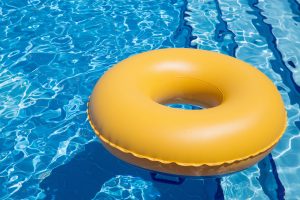 Here in South Florida, swimming pools are a way of life. Unfortunately, they can also be the cause of death and serious injury. Florida swimming pool accidents result in hundreds of
Here in South Florida, swimming pools are a way of life. Unfortunately, they can also be the cause of death and serious injury. Florida swimming pool accidents result in hundreds of  Once again, tort reform has made it tougher for victims of Florida car accidents to sue and collect fair damages for their losses. In order to get this passed the legislature has inaccurately pointed the finger at the allegation of frivolous Florida injury lawsuits and sky-high compensation payouts as the cause of high customer insurance premiums.
Once again, tort reform has made it tougher for victims of Florida car accidents to sue and collect fair damages for their losses. In order to get this passed the legislature has inaccurately pointed the finger at the allegation of frivolous Florida injury lawsuits and sky-high compensation payouts as the cause of high customer insurance premiums.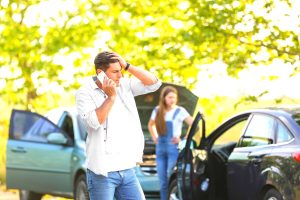 Every single day, there are an average of 1,050 Florida car accidents, according to the
Every single day, there are an average of 1,050 Florida car accidents, according to the 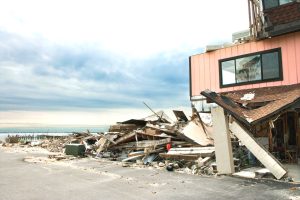 Southwest Florida is still reeling from the unprecedented devastation of Hurricane Ian, a huge storm with near-Category 5 winds and storm surges that reached 12-18 feet in some areas of Lee County.
Southwest Florida is still reeling from the unprecedented devastation of Hurricane Ian, a huge storm with near-Category 5 winds and storm surges that reached 12-18 feet in some areas of Lee County.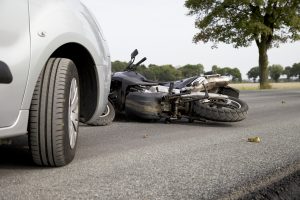 In Florida motorcycle accidents, there can be numerous defendants – sometimes including those who weren’t actually behind the wheel. In a recent motorcycle accident lawsuit that settled mid-trial for $1 million, the defendants included the driver as well as the owner of the vehicle, which in this case was the driver’s employer, a commercial cleaning company. They were held responsible by a legal doctrine called vicarious liability.
In Florida motorcycle accidents, there can be numerous defendants – sometimes including those who weren’t actually behind the wheel. In a recent motorcycle accident lawsuit that settled mid-trial for $1 million, the defendants included the driver as well as the owner of the vehicle, which in this case was the driver’s employer, a commercial cleaning company. They were held responsible by a legal doctrine called vicarious liability.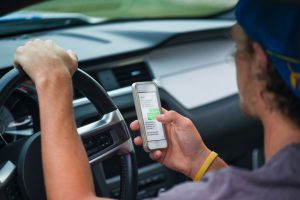 Food delivery services, such as Uber Eats, Grubhub, and DoorDash, have been doing booming business in recent years. The online food delivery industry is now generating
Food delivery services, such as Uber Eats, Grubhub, and DoorDash, have been doing booming business in recent years. The online food delivery industry is now generating  In our many years practicing civil law, we have come to recognize there are many misconceptions surrounding Fort Myers personal injury claims. Some relate to the motivations of personal injury attorneys (no, we aren’t paid if we file frivolous claims that quickly get tossed). Others misconstrue how the processes works (no, you aren’t guaranteed a payout just because you were seriously hurt).
In our many years practicing civil law, we have come to recognize there are many misconceptions surrounding Fort Myers personal injury claims. Some relate to the motivations of personal injury attorneys (no, we aren’t paid if we file frivolous claims that quickly get tossed). Others misconstrue how the processes works (no, you aren’t guaranteed a payout just because you were seriously hurt).






